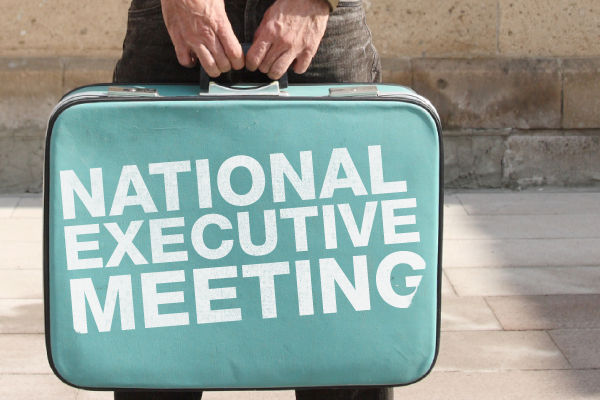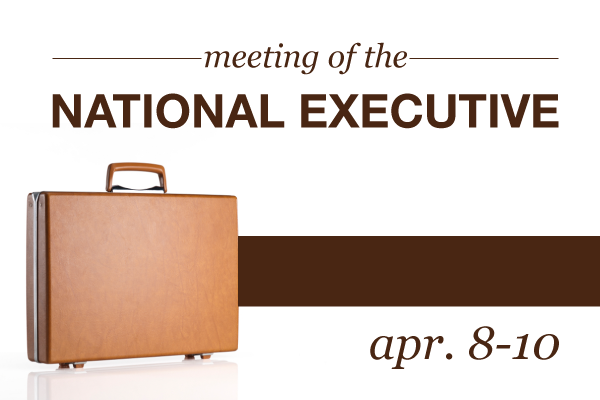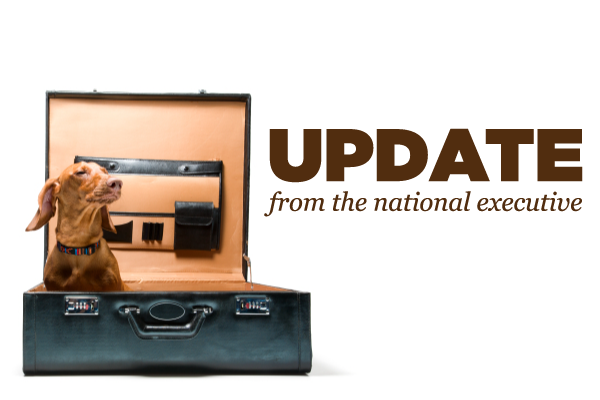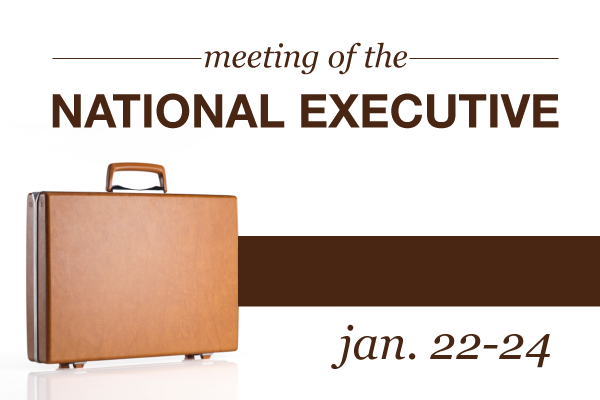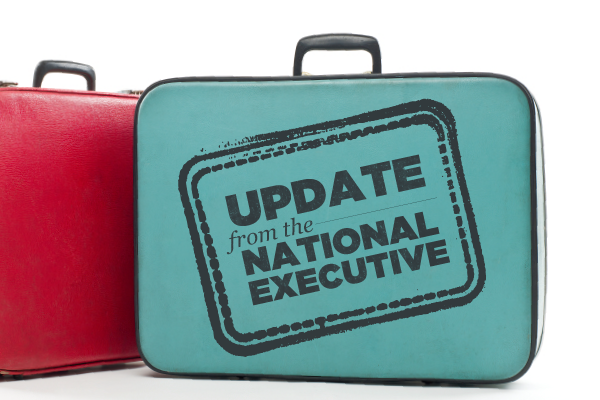
The National Executive met last week, immediately following the All Presidents Conference. That’s a long time to be living out of a suitcase! But, despite a rather busy (but nonetheless enjoyable!) weekend, our leaders didn’t waste any time getting right to work.
“It really was a busy weekend,” said Assistant Regional Vice-President Paulette Gaudet of Saskatchewan, who volunteered her help wherever she could: the registration desk, the swag table and the hospitality suite. From working the registration desk alone, Gaudet said she got to meet 90% of the members attending the conference.
“It was awesome to see so many faces and being able to put names to faces!”
The national executive meeting was also the occasion to give a warm welcome to our union’s newest assistant regional vice-president, Bill Bennett.
“If I sound nervous, it’s because I am nervous,” joked Bennett during the introductions. Bennett will be the Atlantic’s assistant regional vice-president in charge of Newfoundland and Labrador. He has been working at Parks Canada since 1988.
One of the first items on the agenda was the attack on the Rand formula. If the Conservatives succeed at eliminating the formula, employees in a unionized workplace would have the option to decide whether or not they wish to pay union dues. We’re not sure of any other service that gives you the option to decide “you know, I don’t feel like paying for this today!”
“Why should only some of the people in a workplace pay for something everyone in that workplace benefits from?” asked PSAC National President Robyn Benson, recently, in the Financial Post.
Members of the national executive agreed that the union needs to engage members. During the meeting, they voted in favour of setting a goal asking local, regional and national leaders to engage with every member, one on one, by the end of 2013. The motion also allocates $40,000 to the regions to support this activity.
Unfortunately, workforce adjustment has become a regular item on the agenda. As previously reported, the National Capital Commission and the National Gallery were two organizations where members were recently told that they’d be out of a job. And with the recent announcement of the Canadian International Development Agency being folded into the Department of Foreign Affairs and International Trade, our members working in development are worried about their future.
Sadly, workforce adjustment is the reason why Regional Assistant Vice-President Benoit Dubeau will no longer be part of the Union of National Employees. Dubeau just recently found a new job.
“Benoit was a very great assistant. He had a lot of potential,” said Regional Vice-President Jean Pierre Naud.
Despite the sad news, Naud says he’s encouraged by the fact that many members are interested in stepping up to the plate.
“I was worried I would have to convince people to step into the position, but it seems like we’ll be having elections shortly,” said Naud.
At the end of a 3-day national executive meeting, the standard item before the adjournment is a roundtable goodbye. By the end of the meeting, we’re pretty sure that Bill Bennett had gotten over his initial nervousness.
“It’s been a busy week and I’ve learned a lot,” he concluded.
“He’s quick on the uptake so he’ll get the hang of it quickly,” joked his fellow regional team member, Angela Decker.
